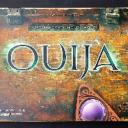Yahoo Answers is shutting down on May 4th, 2021 (Eastern Time) and the Yahoo Answers website is now in read-only mode. There will be no changes to other Yahoo properties or services, or your Yahoo account. You can find more information about the Yahoo Answers shutdown and how to download your data on this help page.
What are the myths concerning the science of Parapsychology?
There are numerous myths that have been proposed as evidence of psi and the legitimacy of Parapsychology as a science. For example, people often misquote the statement that humans only use 10% of their brains.
I am looking for specific statements or claims that are made concerning the science of parapsychology. If you make some general comment like "None of this stuff is real", I will give you a thumbs down and you will not get a best answer from me. I want specifics, and I am not interested in reading about people's praise of their hero or any references to challenges.
On the other hand, I am looking for honest and thoughtful opinions without any regard to which position they are supporting. Please try to keep the responses respectful.
4 Answers
- JohnLv 71 decade agoFavorite Answer
I saw this question and after a day what came to mind was the p = 0.95 criterion. In science, the p=0.95 criterion is used, somewhat arbitrarily, as a cut-off to indicate a significant difference from what we would expect. Practically speaking, it's what researchers use to decide whether their results are publishable or not :) By publishable that certainly does not mean the results are conclusive, but simply that they are significant enough to formulate a theory or hypothesis around them. A value of 0.95 has been chosen as a standard because most experiments seem to have somewhere between 10 - 50 trials. An experiment with 10,000 trials, for example, would warrant a much higher P value.
Instead, the common myth among some paranormal enthusiasts is that p=0.95 means the claim must be accepted. In other words, the myth holds that it is unreasonable to not accept a claim that meets a 95% probability test. And this is certainly a myth, because the rest of the scientific world doesn't work this way. It's a huge mistake in scientific reasoning to pin everything on this one simple number which itself is a function of so many other things that require close scrutiny.
When working with P values, they can't be used in a vacuum. They must be used in the greater context of statistical probability. In other words, if the claim is an extraordinary one which would topple or undermine other more confirmed theories, the criterion for general acceptance among scientists will certain be greater than a 19 in 20 probability basis. It may be far more likely that you happen to be that 1 in 20 outcome rather than the rest of science topples around you, especially considering that the P value is completely a function of experimental design which varies from terrible to good among paranormal researchers.
- psiexplorationLv 71 decade ago
Interesting question. It is a general statement but I think
"Extraordinary claims require extraordinary evidence" is a myth that is often used against parapsychology.
Once any claim in science is repeatedly demonstrated with statistically significant results (chance is less than 5%) it is accepted in every field of science except those claims coming from parapsychology.
Another claim (related to the above) is that parapsychology is always found lacking when the methods and statistics are examined and thus parapsychology fails to live up to the accepted standards of scientific evidence.
This is not to say that some experiments don't have flaws (as in every experiment ever performed by any field of science).
I have heard numerous claims used by psychics like "scientist have tested and confirmed my ability to communicate with spirits" but they never seem to be willing to provide names, dates, and published articles.
It would be interesting to compile a list of these claims and be able to publish responses to them.
For example the 10% of the brain thing is misquoted but not totally inaccurate it just need to be explained in more detail like many other complicated scientific findings.
An unspoken myth is perhaps that research can be explained in one sentence.
Edit: I agree with poster of the article that
sums it up nicely in the sentence near the end:
"Today most professional research in parapsychology is done with unselected subjects and with good controls against deception."
Psiexploration
- Dr. NGLv 71 decade ago
The use of scientific method by TV ghost hunters like TAPS. I've seen numerous claims referring to their methodology being believable and scientific. Such as their one or so debunking an episode. (There's no ghost in the attic, but we believe something is in the cellar). Setting up dramatic atmosphere with a spooky history and investigating in the dark with sciency sounding gizmos, among other things.


